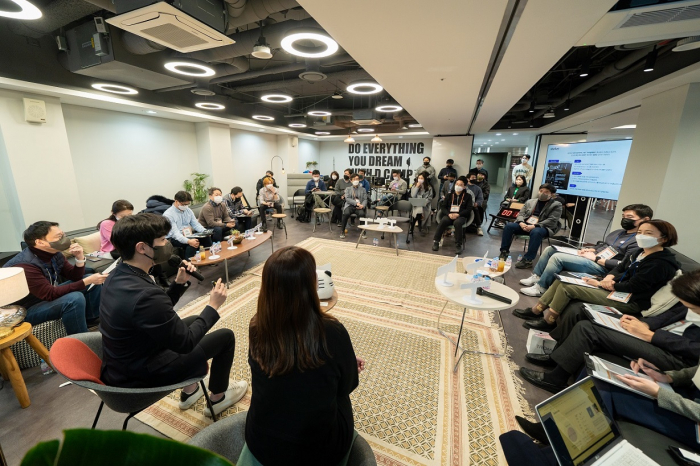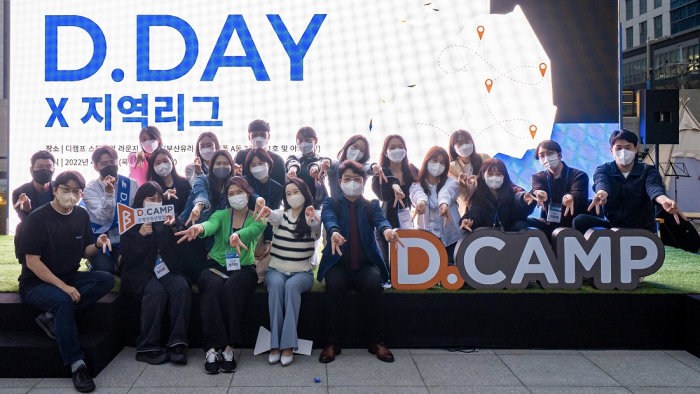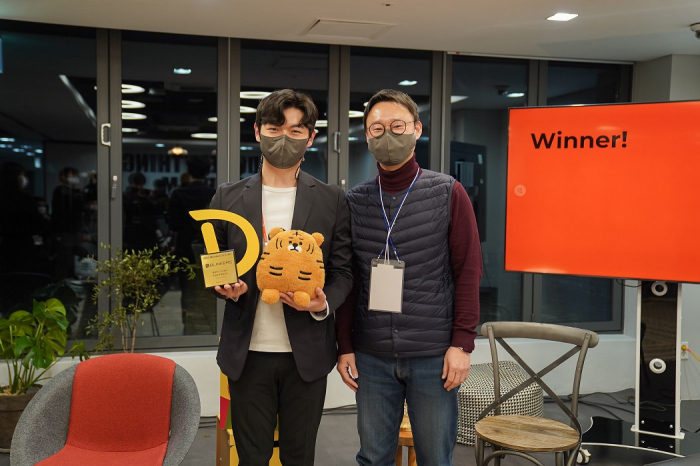Korean startups
Startup accelerator D.Camp generates $22 billion in value in 10 years
The incubator hub has created 109,000 jobs since its 2012 inception and has invested in half of all 18 South Korean unicorns
By May 23, 2022 (Gmt+09:00)
3
Min read
Most Read
LG Chem to sell water filter business to Glenwood PE for $692 million


Kyobo Life poised to buy Japan’s SBI Group-owned savings bank


KT&G eyes overseas M&A after rejecting activist fund's offer


StockX in merger talks with Naver’s online reseller Kream


Mirae Asset to be named Korea Post’s core real estate fund operator



Since its inception in 2012, the Banks Foundation for Young Entrepreneurs has generated more than $28 trillion won ($22 billion.)
The goal of the foundation is to promote entrepreneurship among those who are starting out in the workforce and to create jobs in the startup ecosystem.
South Korea’s 19 financial institutions joined forces on May 24, 2012 and signed an agreement that stipulated a total of 845 billion won in investment. Of that figure, 500 billion won was promised as part of the lenders’ philanthropic contribution at the foundation’s establishment; and the remaining 345 billion won was pledged later in 2018.
The foundation is perhaps better known for its two incubator hubs known as D.Camp and Front1. The former was established in 2013 and the latter in 2020.
For the last two months, a team of academics at Seoul National University’s prestigious business school conducted a performance analysis on the startup accelerator.
The analysis found that the organization used just 570 billion won in investment for a 28 trillion won return and created 109,000 jobs. To put these numbers into perspective, 1 billion won generated economic value worth a whopping 49.4 billion won and 19 new jobs.
Park Nam-gyoo led a performance analysis with his colleagues.
“The foundation forecasts it will generate 68.7 trillion won worth of economic value and create some 250,00 new jobs in the next 10 years,” Park said.
The academic elaborated that the 19 participating banks are making “meaningful economic and social contributions” to the startup ecosystem.

NINE UNICORNS
The startup accelerator is an early stage investor in nine out of 18 unicorns – or half of all startups with valuations of at least $1 billion in South Korea.
Ninety percent of the total 845 billion won investment was poured into 26 different funds. In turn, that resulted in the foundation’s injection of funds into nearly 3,000 startups until last year.
Some of the most noteworthy beneficiaries of the funding are Woowa Brothers Corp., the operator of South Korea’s top food delivery app Baedal Minjok; Viva Republica Inc., the operator of fintech platform Toss; and used goods trading app Karrot Market.
The foundation plans to secure 28 billion won for both direct and indirect investment within this year to create 15 new funds.
DIRECT INVESTMENT
In regards to direct investment, the foundation injected 18.6 billion won into 144 startups during the last 10 years and reaped more than 523 billion won in return.
Some of the startups that are showing notable results include: fintech platform operators Korea Credit Data and Finda, Inc., as well as edutech startup Jaranda.
Whereas indirect investments were made vis-a-vis funds, direct investments went to winners of D.Camp’s monthly demo day called D.Day.
More than 6,000 startups participated in 92 demo days between June 2013 through late last year.

The foundation described D.Camp as the intersection of foreign partner firms and the domestic startup scene.
It is working with a number of international institutions including the United Nations Industrial Development Organization (UNIDO) and World Bank.
In recent years, the accelerator has been linking South Korean startups that wish to explore the Japanese and Southeast Asian markets with local partners.
For example, Noutecompany Corp., operator of digital stationary contents platform WeBudding, and Inbet Co., which documents packing processes for logistics companies, are scheduled to participate in Rocket Pitch Night Spring. Participating startups in the event go to major cities around Japan to introduce their businesses.
“The [domestic] startup ecosystem has scaled up from 10 years ago,” said the foundation’s Executive Director Kim Young-duk. “As such, our task for the next 10 years is to enter the global arena.”
Kim elaborated the goal is to find and verify trustworthy partners abroad to shorten the trial and error period and lower unnecessary expenses for South Korean startups.
Write to Kim Joo Wan at kjwan@hankyung.com
Jee Abbey Lee edited this article.
More to Read
-

-
 Korean startupsStartup accelerator Klim Ventures secures $4 mn in bridge capital
Korean startupsStartup accelerator Klim Ventures secures $4 mn in bridge capitalApr 26, 2022 (Gmt+09:00)
1 Min read -
 Korean startupsSaaS provider Clika wants to lead S. Korea's MLOps market
Korean startupsSaaS provider Clika wants to lead S. Korea's MLOps marketApr 01, 2022 (Gmt+09:00)
1 Min read -
 Korean startupsTranslink and Banks Foundation form $10 mn fund for S.Korean startups
Korean startupsTranslink and Banks Foundation form $10 mn fund for S.Korean startupsMar 14, 2022 (Gmt+09:00)
1 Min read -
 Korean startupsBank of Wine: High-end wine investment in the form of digital assets
Korean startupsBank of Wine: High-end wine investment in the form of digital assetsMar 03, 2022 (Gmt+09:00)
4 Min read
Comment 0
LOG IN


